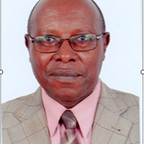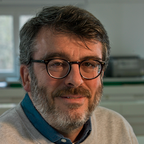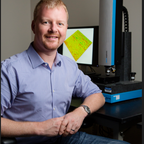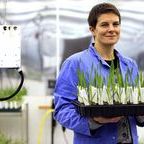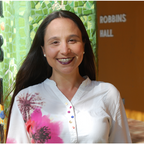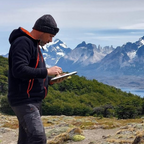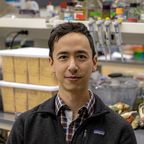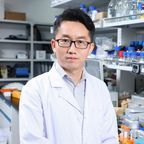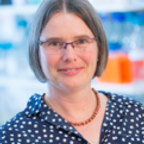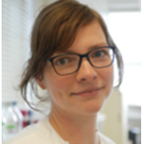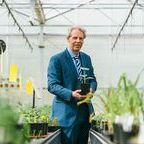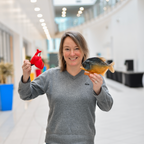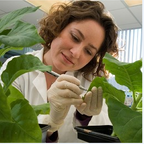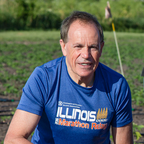Plant
P1 - Improving Crop Nutrient Status: Discovery, Innovation & Translation
Session Length
2 days (Tuesday 4th-Wednesday 5th July)
Session Description
The session will address the science underpinning biofortification strategies with a focus on crop biology and crop-environment (particularly soil) interactions. We aim to identify a keynote speaker that can provide an overview of the significance and context of biofortification and will then seek contributions from fundamental biologists addressing the physiological processes, biochemical mechanisms and genetic networks regulating the accumulation of mineral and organic nutrients in the edible parts of crop plants. Fundamental research addressing the role of microbes in facilitating mineral mobilisation and uptake would also be within scope.
Applied research topics would include breeding tools, technologies and approaches for biofortification, the use of biotechnological approaches for biofortification and the development of agronomic and management strategies for enhancing mineral or organic nutrients in crops.
Session Aims & Objectives
The primary aim of the session is to bring together a global multidisciplinary group of plant and crop biologists to focus on challenges and opportunities in crop biofortification. We will edit a JXB special issue on the topic of biofortification seeking review articles from leading researchers in the area. As part of this SI we will seek to bring together key researchers to produce an opinion piece highlighting key challenges and identifying research needs. It is our ambition that the SI and opinion piece will provide a roadmap for biofortification research accelerating the development of opportunities for translation. We anticipate that networks developed as part of the session will lead to new funding applications and aim to raise the profile of this research area by direct invitation to key individuals and media organisations.
P2 - Sugar metabolism, transport and signalling in plants
Session Length
1 day (Thursday 6th July)
Session Description
Sugars are the major product of photosynthesis and the main source of carbon and energy for growing plant tissues. They also act as signal molecules that regulate the expression of thousands of genes and influence key developmental decisions during the plant’s life cycle, such as flowering. This session will integrate knowledge about sugar metabolism, transport and signalling to advance our understanding of how these simple molecules play such a central role in the life of plants.
Session Aims & Objectives
1. To bridge the gaps between plant disciplines by bringing together biochemists, physiologists and developmental plant biologists with a common interest in the functions of sugars in plants.
2. To reach a better understanding of how plants control the allocation of their carbon resources to different parts of the plant, thereby optimizing their growth for survival in the wild.
3. To inform plant breeders how to target key traits, such as shoot and root architecture, flowering time, sex determination and seed/fruit development, that influence the productivity of crop plants and their resilience in a changing environment.
The session could serve as a springboard for the growing community of scientists with an interest in sugars to establish a regular series of meetings on sugar metabolism, transport and signalling.

P3 - Life at the interface - plant membrane-protein dynamics and interactions during responses to environmental change
Session Length
2 days (Tuesday 4th-Wednesday 5th July)
Session Description
A broad, multi-disciplinary look at how plant membrane and protein-lipid complex structure and composition are organised, regulated and function, particularly during responses to environmental change.
Session Aims & Objectives
1. Bring together researchers working at all scales across disciplines to address how membranes and proteins form discrete functional proteo-lipid complexes.
2. Develop new ways of working through collaborations to address fundamental questions surrounding plant membrane biology.
3. Showcase cutting edge research to the broader community to bring in fresh ideas and disseminate ideas to other fields.
Impact - A fresh look at plant membrane and membrane protein biology, bringing together researchers from many different fields to develop new ideas and approaches.
P4 - Stomata - a model system for fundamental scientific discovery and a target for crop improvement to meet development goals
Session Length
1 day and 1 half day (Thursday 6th and Friday 7th July (AM))
Session Description
The session will explore the mechanisms underlying stomatal function and its influence in mediating plant-environment interactions in crops and model plant species. The approach will be highly integrative, bringing together researchers studying stomata at all scales from the cell to the ecosystem. In addition to having a strong focus on fundamental discoveries about the regulation of stomatal and photosynthetic form and function, the session will reflect the importance of water use efficiency as a trait that needs to be improved in crops to enhance productivity, climate resilience and agricultural sustainability. Therefore it closely relates to the Un development goals that are the organizing principle for the meeting.
Session Aims & Objectives
The session aims to:
1. highlight recent major advances in understanding the regulation of structure and function of stomata and photosynthesis, which determine water use efficiency
2. create a dialogue between researchers working on water use efficiency at molecular, genetic, physiological and agronomic scales
3. advance efforts to improve crop productivity, climate resilience and sustainability through greater water use efficiency
4. provide a diverse group of speakers, including early-career researchers an opportunity to present their work
5. share details of recently developed high-throughput phenotyping tools and biotech advances with the research community and representatives of the crop industry
P5 - Exocytosis in plant cells
Session Length
1 day (Wednesday 5th July)
Session Description
Exocytosis in plant cells is involved in all aspects of plant life regulation including growth (cell wall biogenesis), development and reaction to different types of stresses including biotic interactions with the pathogens. Yet - in contrast to endocytosis - we still know very little about the molecular mechanisms governing plant cell exocytosis or secretion in more general terms. We will focus in selected talks and poster presentations on the latest advancements in the analysis of molecular processes regulating exocytosis in plants also with a focus on the interplay between the ion dynamics, proteinaceous regulators and their interaction/cooperation with the membrane lipids and their dynamics contributing to the exocytosis. Mechanisms of polarized/localized exocytosis and unconventional secretion in plants will be also highlighted.
Session Aims & Objectives
Major aim of the session will be in the end to highlight recent progress in the molecular analysis of processes of plant exocytosis and also to show important unanswered problems which should be addressed in this field in the future. It should on one side remind scientist studying different aspects of plant biology that exocytosis should be considered not only as inevitable background process, but as a highly regulated process contributing to the regulation of regulators incl. signalling pathways, and most importantly on the other side to attract attention of young starting scientists to this neglected field.
P6 - Plant biology for sustainability
Session Length
1 day and 1 half day (Tuesday 4th and Wednesday 5th July (AM))
Session Description
During this session we will be tackling two major themes: (i) moving towards more sustainable plant science and agriculture that is representative of real-world conditions and challenges, and (ii) examining crops and germplasm of the future. Within these two themes the session will be dynamic and multifaceted, bringing in perspectives on sustainable agriculture, variety adoption, stress in plants, and how plants interact with their environment – especially within the context of a changing climate and limited global resources.
Session Aims and Objectives:
- Detail recent research initiatives focused on plant science for sustainability, especially within the context of application in agriculture and future climactic conditions.
- Explore which factors affect variety adoption and what goes into developing new varieties that less resource-intensive and more climate resilient.
- Examine exotic and diverse crop resources to conserve agricultural productivity and germplasm for the future.
P7 - Engineering Earth's Carbon Cycle using Plants and their Environments
Session Length
1 day and 2 half days (Wednesday 5th (PM), Thursday 6th, and Friday 7th July (AM))
Session Description
Climate change is and will remain a central challenge for decades and centuries to come. The root cause of climate change are steadily growing levels of greenhouse gases in the atmosphere. Plants and their ecosystems play a key role in the global cycles of greenhouse gases, most importantly CO2. Engineering of plants and their ecosystem might have enormous potential for mitigating and managing climate change, both for greenhouse gas emissions and carbon sequestration. The session is intended to bring together biologists to discuss ongoing and potential efforts and the science underlying it.
Session Aims & Objectives
1. Provide a venue of researchers who are interesting in studying the possibilities or biological processes by which plants or their environments can avoid GHG emissions or sequester carbon
2. Illuminate this important but still emerging area of plant science
3. Inspire early career scientists to engage or seek training in this area.
P8 - PEPG: Plant physiological responses across scales
Session Length
1 day and 1 half day (Wednesday 5th and Thursday 6th July (AM))
Session Description
This session unites research advancing our understanding of short-term acclimation and long-term adaptation of plants to changing environmental conditions. In particular, this session will strive to integrate shoot, root and whole plant level responses to biotic and abiotic stress in field and laboratory conditions. This topic will be highly integrative, and will bring together researchers focussing on molecular physiology (i.e. function and regulation of processes), leaf and whole plant level physiology, and the effect these have on canopy and ecosystem level responses.
Session Aims & Objectives
This session aims to:
1. Convene international expertise in Plant Environmental Physiology to catalyse research and connections.
2. Highlight the SEB “Plant Environmental Physiology Group”
3. Showcase a diverse group of speakers, including both established and early-career researchers
4. Create a dialogue between researchers across three broad areas of plant physiology:
- Identifying genes, mechanisms and pathways involved in plant physiological responses to a variable climate.
- Understanding whole plant physiological responses occurring above and below ground.
- Scaling root and shoot level responses to canopy, ecosystem, and regional scale models to predict the impact of physiological changes.
P9 - Cereal biology in 4D : gene expression across space and time
Session Length
1 day (Tuesday 4th July)
Session Description
With the advent of single cell and spatial technologies investigation of gene expression in great detail is now enabling us to uncover the mechanisms underpinning development. Cutting-edge experiments yielding this high resolution data will enable precision engineering and targeted cereal improvement.
The session will cover three main areas:
1) Emerging high resolution technologies and their application to cereal and model species
2) Biological insight into agronomically relevant pathways in cereals gained by the application of cutting-edge 'omics technology at high resolution
3) Computational approaches to analyse and interpret huge datasets gathered by high resolution techniques
Session Aims & Objectives
1) Enable the sharing of best practises in high resolution genomic approaches for enhancing biological understanding. This meeting will bring together researchers who might not usually meet due to the use of different model systems or traits of interest.
2) Develop new collaborations between scientists working on different species, traits or using different (and frequently technically challenging) techniques.
3) Promote equality and diversity in the biological sciences. We aim for 50 % female invited speakers and diversity of geographical locations (as indicated by our suggested speakers) and will maintain diversity of speakers across the session. Our suggested invited speakers include both senior and newly appointed faculty (<5 years). We will select early career researchers to speak from abstracts (student and post-doc). We would like to include early career speakers from geographical regions who might otherwise not be able to present due to budget constraints, which will be facilitated by a hybrid format (if available). Therefore the session will provide a training component for early career researchers, especially those selected for an oral presentation.
P10 - Unlocking medicinal plants' full potential through rigorous application of plant science principles
Session Length
1 half day (Wednesday 5th July (PM))
Session Description
The session will cover aspects of challenges working with medicinal plants - from regulatory frameworks to the limited scientific knowledge of the plants' origin and domestication history, as well as their complex secondary metabolism, developmental biology and physiology.
Session Aims & Objectives
Aim 1 - Introduction of medicinal plant secondary metabolism, its complex regulation and pharmacology.
Aim 2 - Unique developmental features and flowering time regulation.
Aim 3- Evolutionary genetics and ecology of medicinal plants.
These three topics will draw an interdisciplinary audience from medical to plant scientists and from plant physiologists to geneticist and ecologists. The large international medicinal cannabis community (scientists, growers, pharmaceutical industry) will also be attracted to this event.
Aim 4 - hurdles to medicinal plant research and development of pharmaceutical products.
This topic will attract growers, the pharmaceutical industry and medical researchers and allow them to share experiences and develop pathways for product development.
AP1 - Looking backwards and forwards after a decade of Conservation Physiology
Session Length
1 half day (Thursday 6th July (AM))
Session Description
The year 2023 represents the ten-year anniversary of the launch of the SEB journal "Conservation Physiology". Conservation physiology is an emerging discipline that is focused on understanding and solving conservation problems across taxa and ecosystems. Given the state of biodiversity and the increasing threat matrix facing the planet, conservation physiology is a timely and relevant disciplinary domain. In this session we will 1. celebrate the first decade of the journal; 2. reflect on the past decade to understand our history and impact to date; and, 3. chart a path forward for conservation physiology for the next decade. The journal has served as more than just a place for content - it has been instrumental in developing a community of practice and in helping to guide the discipline. Using a diverse group of speakers that span taxonomic expertise, region, and career stage we will bring together those interested in further developing this discipline. To enhance the impact of conservation physiology on policy and practice we will also include management perspectives as well as those that deal specifically with communicating conservation physiology to diverse audiences.
Session Aims & Objectives
1. To celebrate the ten-year anniversary of the launch of the journal Conservation Physiology.
2. To reflect on the last decade (and beyond) in terms of the history of the discipline and its development.
3. To look forward and chart a course for the next decade to ensure that Conservation Physiology (as a discipline and journal) delivers on its goal to generate science to understand and solve conservation problems.
The impacts range from strengthening the conservation physiology community to raising the profile of the journal (to the benefit of SEB). Moreover, it will help to position the discipline (and the journal) for the next decade.
ACPO1 - 100 years of SEB Animal
Session Length
Animal Section: 2 days (Tuesday 4th-Wednesday 5th July)
Session Description
As we look back on 100 years of the SEB, this special session aims to celebrate the rich history of experimental animal biology that has been a hallmark of the society. The session will provide homage to the science and scientists that have paved the way within central topics of comparative physiology including, biomechanics, ecophysiology, cardio-respiratory physiology, neuro-biology, temperature physiology, osmoregulation, endocrinology and conservation physiology. All presentations will be delivered by outstanding invited speakers who will aim to connect the historical legacy of their research topic to their current research programs that exemplify state of the art experimental animal biology.
Session Aims and Objectives
The goals of this session are: i) to provide a historical perspective on some key topics of experimental animal biology; ii) to showcase its legacy in terms of the outstanding related research that is currently being carried out by modern leaders in the respective field.
ACPO1 - 100 years of SEB Cell
Session Length
Cell Section: 1 half day (Tuesday 4th (AM))
Session Description
This session will review the history of the contribution of the SEB in three areas of Cell Biology- Cell Cycles, Endomembrane and Cytoskeleton and Structure and Dynamics of the Nucleus. The talks will review the way in which SEB members have contributed to the development of the fields and will aim to bring this history up to date.
ACPO1 - 100 years of SEB Plant
Session Length
Plant Section: 1 day (Friday 7th July)
Session Description
These talks will detail advancements in plant biology within the SEB by outstanding researchers that have made an enduring impact on our understanding of plants, especially within the fields of photosynthesis and plant development. This session also aims to highlight the contributions of society members throughout the history of the SEB, offering perspectives on innovations in plant science over the past century of the SEB while also looking to the future and what lies ahead.
Session Aims and Objectives
- To detail advancements in plant biology within the history of the SEB as well as identify future challenges, questions, and ideas within the field of plant biology.
- To commemorate the SEB’s rich history in plant science research and to generate an opportunity for attendees and presented to exchange research perspectives in plant biology.
CP1 - General cell and plant biology
Session Length
Poster session (evening of Wednesday 5th July)
The Centenary conference will take place at the Edinburgh International Conference Centre The Exchange, 150 Morrison St, Edinburgh EH3 8EE

Visit Scotland supporter of the Centenary conference






